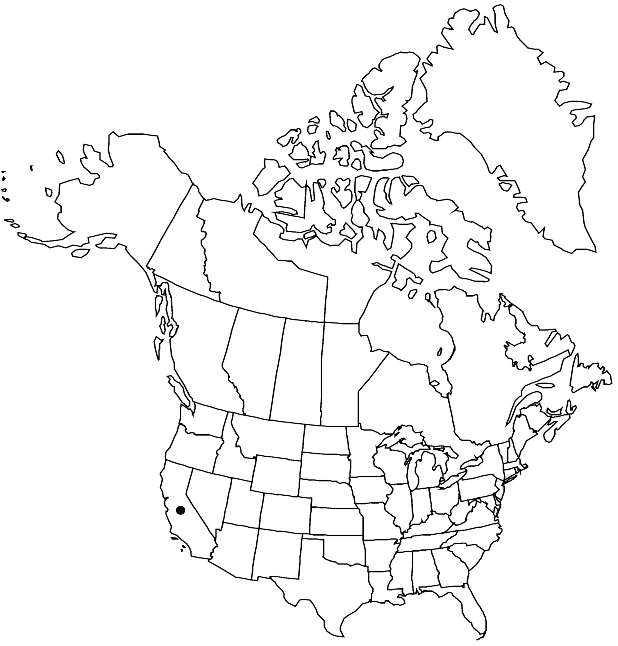Draba sierrae
Madroño 5: 149. 1940.
Perennials; (cespitose, pulvinate, canescent); caudex branched (covered with persistent leaves, branches sometimes terminating in sterile rosettes); scapose. Stems unbranched, (0.05–) 0.1–0.4 dm, pubescent throughout, trichomes pectinate or 2–4-rayed, 0.1–0.4 mm, and sometimes simple. Basal leaves (densely imbricate); rosulate; sessile; blade oblong, 0.2–0.6 (–0.8) cm × 0.7–1.5 (–2) mm, margins entire, (sometimes ciliate, trichomes simple, 0.5–1 mm), surfaces densely pubescent with stalked, subdendritic, 7–12-rayed trichomes, 0.2–0.5 mm. Cauline leaves 0. Racemes 2–6 (–9) -flowered, ebracteate, elongated in fruit; rachis not flexuous, pubescent as stem. Fruiting pedicels divaricate to ascending, straight, 2–5 (–7) mm, pubescent as stem. Flowers: sepals oblong, 2.5–3.5 mm, pubescent, (trichomes short-stalked, branched); petals yellow, spatulate, 4–5 × 1.2–1.8 mm; anthers oblong, 0.5–0.7 mm. Fruits lanceolate to elliptic or broadly oblong to ovate-orbicular, often twisted, occasionally plane, flattened, 4–8 (–10) × (2–) 3–4.5 mm (asymmetric); valves pubescent, trichomes short-stalked, subpectinate, or 2–4-rayed, 0.05–0.3 mm, sometimes with simple ones; ovules 8–14 (–16) per ovary; style (0.1–) 0.3–0.7 (–1) mm. Seeds ovoid, 1.2–1.5 × 0.7–1 mm.
Phenology: Flowering Jun–Aug.
Habitat: Granite outcrops, rocky slopes
Elevation: 3500-3900 m
Discussion
Of conservation concern.
Draba sierrae is known only from the southern Sierra Nevada in east-central California (Inyo and Fresno counties).
Selected References
None.
Lower Taxa
"elongated" is not a number."thick" is not a number.
